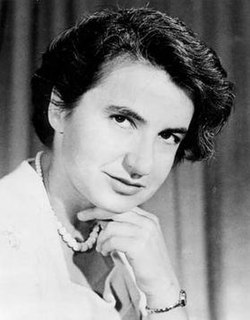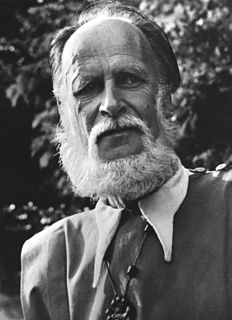A Quote by Mahatma Gandhi
The Charkha is the symbol of nonviolence on which all life, if it is to be real life, must be based.
Related Quotes
Whilst I may not actually help anyone to retaliate, I must not let a coward seek shelter behind nonviolence so-called. Not knowing the stuff of which nonviolence is made, many have honestly believed that running away from danger every time was a virtue compared to offering resistance, especially when it was fraught with danger to one's life. As a teacher of nonviolence I must, so far as it is possible for me, guard against such an unmanly belief.
You look at science (or at least talk of it) as some sort of demoralising invention of man, something apart from real life, and which must be cautiously guarded and kept separate from everyday existence. But science and everyday life cannot and should not be separated. Science, for me, gives a partial explanation for life. In so far as it goes, it is based on fact, experience and experiment.
Vocation does not come from willfulness. It comes from listening. I must listen to my life and try to understand what it is truly about-quite apart from what I would like it to be about-or my life will never represent anything real in the world, no matter how earnest my intentions…..Before I can tell my life what I want to do with it, I must listen to my life telling me who I am. I must listen for the truths and values at the heart of my own identity, not the standards by which I must live-but the standards by which I cannot help but live if I am living my own life.
The Theatre of Cruelty has been created in order to restore to the theatre a passionate and convulsive conception of life, and it is in this sense of violent rigour and extreme condensation of scenic elements that the cruelty on which it is based must be understood. This cruelty, which will be bloody when necessary but not systematically so, can thus be identified with a kind of severe moral purity which is not afraid to pay life the price it must be paid.
I think that the exactitude of the photograph has a sort of compelling nature based in its power to duplicate life. But to me the real power of photography is based in death: the fact that somehow it can enliven that which is not there in a kind of stultifying frightened way, because it seems to me that part of one's life is made up of a constant confrontation with one's own death.
If a man has the right to self-ownership, to the control of his life, then in the real world he must also have the right to sustain his life by grappling with and transforming resources; he must be able to own the ground and the resources on which he stands and which he must use. In short, to sustain his human right.





































